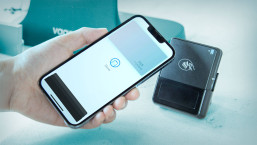With Christmas fast becoming a distant memory and the January blues setting in, thousands of us are turning our eyes to booking a holiday abroad. But the recent hacks at United and American Airlines show that hackers see the travel industry as fertile territory.
You should - and if you’re careful, you will - be able to book a holiday without fear of fraudsters, but the proliferation of travel scams and hacking attacks on travel booking websites (more than 20 in the past two months alone) mean that you need your wits about you when you’re booking just as much as you would if you were strolling through a bustling street market. Follow these holiday security tips for the best chances of avoiding a scam.
Check your confirmations carefully
Last year, more than 10,000 customers using Booking.com were the subject of phishing attacks that attempted to extract pre-payment for hotel reservations once bookings were made. Even if emails you receive look official, check that the details are a perfect match for your trip - often there will be a telltale error, such as listing airport transfers by bus instead of train.
If it looks too good to be true...
Last year, the UK’s Get Safe Online government campaign, and travel industry body ABTA, warned that 30% of shoppers neglect to check for secure payment pages and verified websites in their hurry to bag a cheap summer break. If it’s a villa rental, for example, double-check it’s genuine by searching other travel agents, and make sure you can speak to the owner or agency directly. If you see five-star rooms at two-star prices, call the hotel direct to verify the deal. Holiday providers should be members of a recognized travel industry body, like ABTA, and should say so on their website.
Stay safe on the move
If you’re backpacking, on a gap year or simply a spur of the moment type of person, take care when booking extensions to your trip. A common scam is for hackers to set up wifi hotspots in hotel lobby areas, popular coffee shops and airport departure lounges. By giving the hotspots official-sounding names like “Hilton Wifi”, they can snare the details of anyone logging in to book their next hotel or onward flight. Check the wifi details when you arrive in a hotel, and don’t log on to a free, unsecured network unless you’re certain it’s official - ask at the information desk if you’re unsure.




